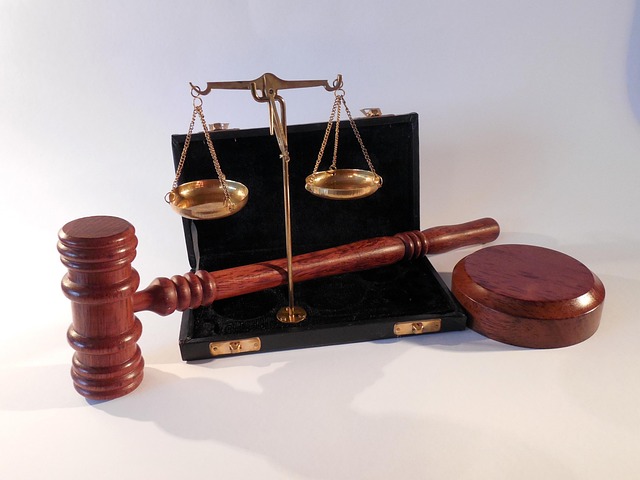Antitrust violation cases focus on maintaining fair competition. Key differences exist between civil and criminal proceedings, primarily in proof burdens. Civil litigation, initiated by private parties, requires showing adverse effects on competition with a flexible "rule of reason" standard. Criminal charges, pursued by governments, demand stricter proof of willful harm to competition through intent and market impact, reflected in the higher burden of 'beyond a reasonable doubt'. These differences significantly impact strategies for businesses facing investigations, with early engagement of white-collar defense attorneys crucial for mitigating penalties.
“Antitrust violation cases are a critical aspect of maintaining fair market competition. This article provides a comprehensive framework for understanding these legal battles, focusing on distinct civil and criminal proceedings. We explore key differences in the burden of proof, where civil cases require lower standards compared to criminal charges, which carry stricter guidelines. By delving into these variations, businesses can better navigate compliance strategies and defenses, ensuring they avoid potential pitfalls associated with antitrust infringements.”
- Understanding Antitrust Violation Cases: A Basic Framework
- The Civil Burden of Proof: Standards and Requirements
- Criminal Charges: Higher Bars and Consequences
- Key Differences Between Civil and Criminal Proceedings
- Implications for Businesses: Strategies for Compliance and Defense
Understanding Antitrust Violation Cases: A Basic Framework

Antitrust violation cases are legal battles centered around ensuring fair competition in the marketplace. Understanding these cases requires a grasp of the distinct differences between civil and criminal burdens of proof. In civil antitrust litigation, brought primarily by private parties for their own benefit, the standard is lower; plaintiffs must show that a defendant’s actions had an actual adverse effect on competition, known as the rule of reason. This flexible standard allows for a case-by-case analysis, considering market conditions and the specific behavior in question.
In contrast, criminal antitrust charges, pursued by government entities, carry a higher burden. Prosecutors must prove that a defendant willfully conspired or engaged in conduct that substantially harmed competition, often demonstrated through detailed evidence of anticompetitive intent and its impact on the market. This stricter standard reflects the severity of potential harm to society from anti-competitive practices and is crucial for protecting consumers and fostering fair economic environments. For his clients involved in these complex cases, navigating all stages of the investigative and enforcement process with experienced white-collar defense counsel is essential.
The Civil Burden of Proof: Standards and Requirements

In antitrust violation cases, understanding the civil burden of proof is paramount. Unlike criminal proceedings, where the prosecution bears the higher standard of ‘beyond a reasonable doubt’, civil cases operate under a lower threshold. The plaintiff in an antitrust lawsuit must demonstrate that an alleged violation is more likely than not to have occurred by presenting substantial evidence and persuasive arguments. This difference is crucial as it shifts the onus of proof from the state to the party accused of the violation, often a respective business.
The standard of proof in civil cases allows for a flexible approach, enabling courts to weigh evidence more leniently. This has led to an unprecedented track record of successful antitrust litigation where plaintiffs have achieved extraordinary results. However, it’s not without challenges; defendants can still mount robust defenses, requiring plaintiffs to be well-prepared and equipped with comprehensive legal strategies to meet the civil burden of proof successfully.
Criminal Charges: Higher Bars and Consequences

In antitrust violation cases, the distinction between civil and criminal proceedings lies in the burden of proof and potential consequences. While civil lawsuits require a lower standard of evidence, demonstrating a significant and unreasonable restraint of trade, criminal charges set a higher bar. The prosecution must prove beyond a reasonable doubt that a corporation or individual willfully violated antitrust laws. This elevated standard reflects the severe nature of such offenses, which can carry substantial fines, imprisonment, or both.
The implications extend beyond legal penalties. Criminal convictions can significantly impact a company’s reputation, potentially damaging its relationships within the filantropic and political communities. Individual clients face personal liability, with white-collar defense becoming a critical consideration for those accused of participating in antitrust violations. This stricter framework ensures that antitrust laws are enforced rigorously, deterring future transgressions and upholding fair competition in the marketplace.
Key Differences Between Civil and Criminal Proceedings

In antitrust violation cases, understanding the key differences between civil and criminal proceedings is crucial. Civil lawsuits focus on resolving private disputes between individuals or businesses, aiming to award damages for losses incurred due to alleged misconduct. The burden of proof in civil cases is typically lower; a plaintiff needs to demonstrate that the defendant’s actions were likely harmful to competition, often through a preponderance of evidence. This makes it easier to win, but the remedies are usually limited to monetary compensation.
In contrast, criminal proceedings involve the state bringing charges against an individual or entity for breaking the law. The primary goal is punishment and deterrence rather than compensation. Here, the burden of proof is much higher; prosecutors must convince a jury beyond a reasonable doubt that the defendant engaged in anti-competitive behavior. Avoiding indictment is a key concern for white-collar defendants facing such charges, as they often involve lengthy jail sentences and significant fines. Unlike civil cases, criminal proceedings can lead to jury trials, adding another layer of complexity for those accused of antitrust violations.
Implications for Businesses: Strategies for Compliance and Defense

Antitrust violation cases have significant implications for businesses, necessitating a comprehensive understanding of both civil and criminal burdens of proof. While civil lawsuits focus on demonstrating harm to competition and market impact with a lower standard of proof, criminal charges demand stricter evidence of intent and specific anti-competitive actions. This distinction is crucial during the investigative and enforcement process, where companies must tailor their strategies accordingly.
Businesses at risk should prioritize proactive measures for compliance, including regular internal audits, training employees on antitrust laws, and fostering a culture of ethical conduct. In the event of an investigation, engaging experienced white-collar defense attorneys early on can prove invaluable. These legal experts guide companies through all stages of the process, providing strategic advice to mitigate penalties and protect against overreaching general criminal defenses.
In navigating antitrust violation cases, understanding the distinct burdens of proof in civil and criminal proceedings is paramount. While both require robust evidence and rigorous analysis, criminal charges impose higher standards and carry more severe consequences. Recognizing these differences empowers businesses to implement comprehensive compliance strategies and mount effective defenses, ensuring they meet the evolving legal landscape’s requirements. By staying informed and proactive, entities can mitigate risks and protect their interests in this complex regulatory domain.






